The Best Keto Sweeteners That Are Low on the Glycemic Index
Here’s what you need to know about the glycemic index and the best keto sweeteners.
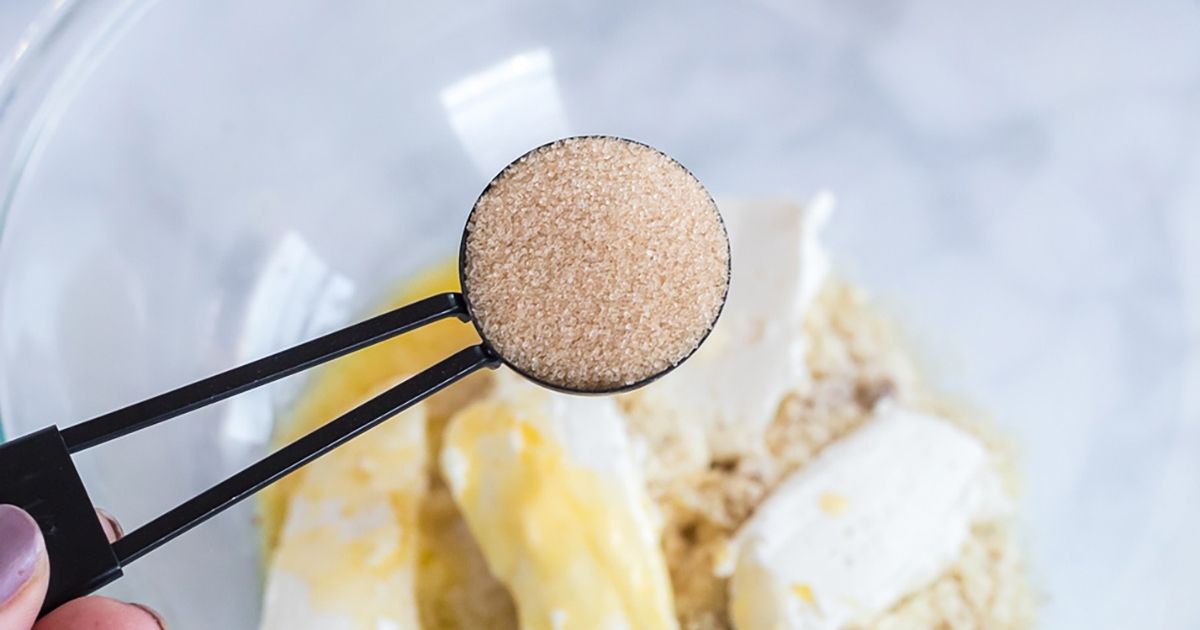
What is the Glycemic Index?
The glycemic index (GI) is a measure of how quickly a food causes your blood sugar level to rise. Foods with a high GI number are quickly digested and absorbed causing a rapid rise in blood sugar. Often, but not always, foods with a high GI have highly processed carbohydrates and refined sugars.
Foods are ranked on a scale from 0 to 100. For example, a saltine cracker has a GI of 72, whereas a skinless baked potato has a 94! Foods with a low GI are digested and absorbed at a slower rate and result in a minimal or less of a rise in blood sugar levels. Low GI foods are typically higher in fiber, protein, and/or fat.
Finally, foods with very few to no carbohydrates (meats, fish, eggs, and avocados) do not have a GI value. This means that they do not cause a rise in blood sugars. These are best for the keto diet!
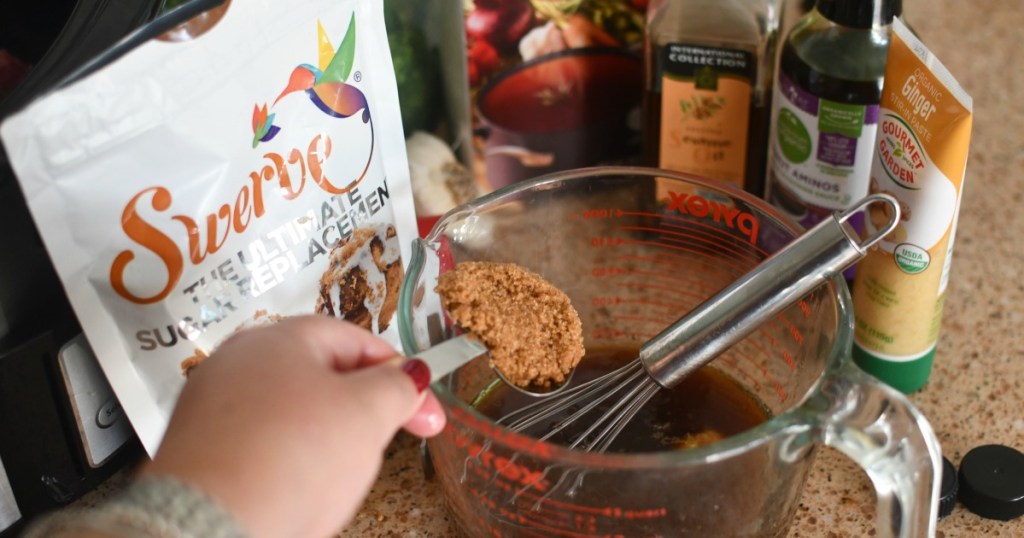
In other words, no carbohydrates = no GI = no effect on blood sugar, insulin, and ketosis.
Choosing low glycemic index sweeteners–or just low GI foods in general–will help you stay on track with your keto diet. Low GI foods can make it easier to keep blood sugars stable, lose weight, and feel full.
Some of the benefits of low-GI diets include:
- Improves insulin resistance. Some studies have shown that nutrition & lifestyle choices which incorporate a low GI diet are effective in managing Type 2 Diabetes.
- Lowers cholesterol and triglyceride levels. Despite the common myth that high-fat diets increase bad cholesterol, several studies have found that it actually improves cardiovascular disease risk.
- Helps ease the symptoms of metabolic syndrome. Some studies have demonstrated a connection between a low-GI diet and a reduction of metabolic syndrome symptoms including hypertension and abdominal obesity.
Here’s why it’s important to use the keto sweeteners that are low on the glycemic index.
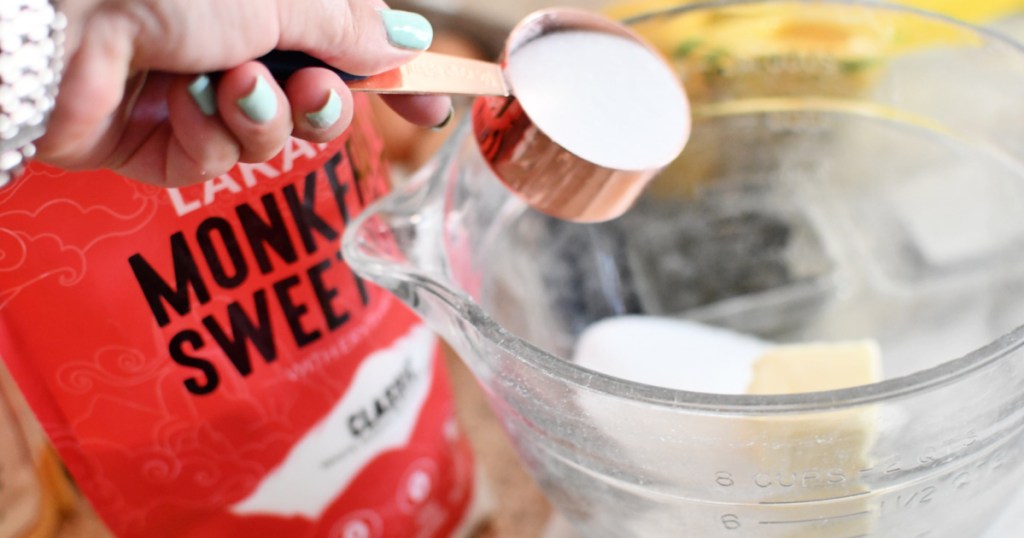
Low-carb, high-fat diets like the ketogenic diet are centered around foods with a very low GI. But one particular food type that continually raises eyebrows is alternative sweeteners. Although the majority of these types of sweeteners have a very low GI, they are by no means all created equal (pun intended 😉).
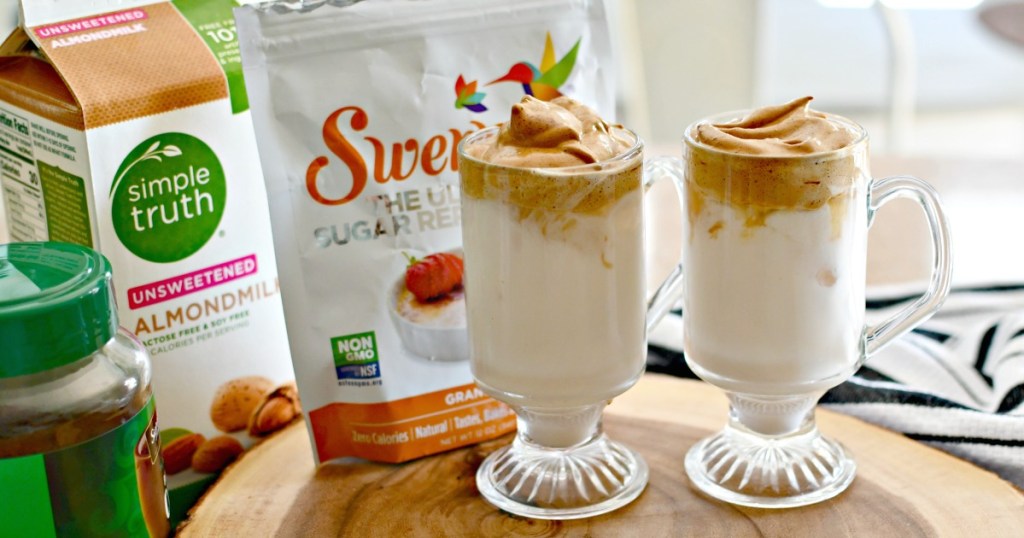
Generally, there are three classifications of sweeteners: natural, sugar alcohols, and synthetic (a.k.a. artificial).
Below is a breakdown of common sweeteners and where they fall on the GI. Note that similar to honey and agave, popular keto sweeteners like erythritol and stevia are also found in nature.
That said, even though honey, agave, and maple are natural sweeteners, they will elevate your blood sugar level, insulin, and kick you out of ketosis. All three have pretty high GI numbers.
Keto-Friendly Sweeteners Chart
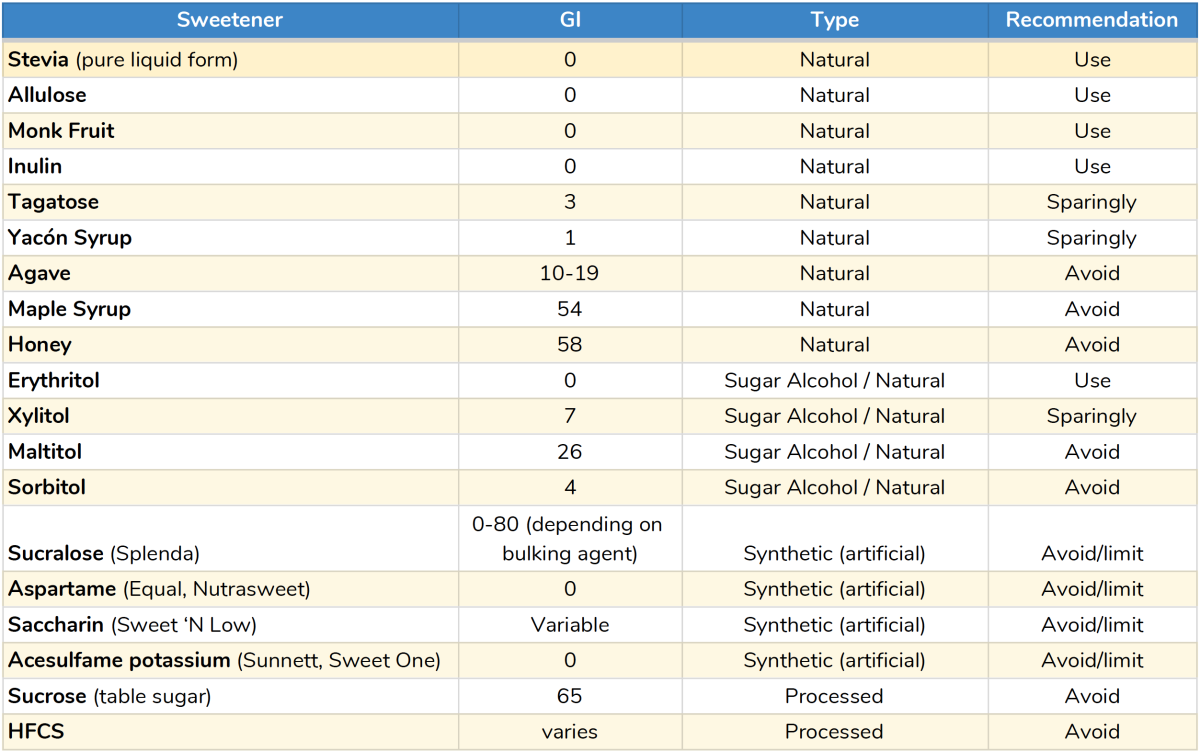
What should you look for on keto sweetener labels?
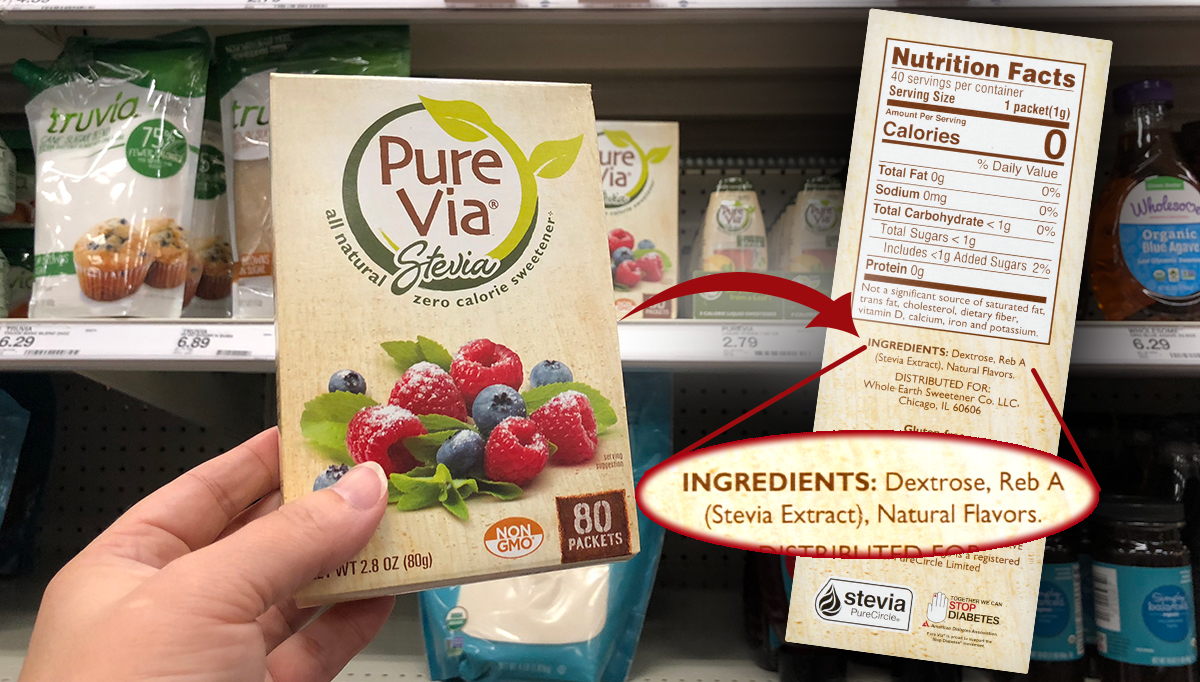
When you purchase a keto sweetener, aim for the pure form rather than one with fillers. Avoid being swayed by the product name, like Splenda and Stevia in the Raw. Always check the ingredients on the packaging for sneaky carbs.
If you see fillers like maltodextrin or dextrose, put the sweetener back on the shelf! Maltodextrin and dextrose are hidden carbohydrates that will spike your blood sugar and potentially could kick you out of ketosis!
Which keto sweeteners will prevent blood sugar spikes?
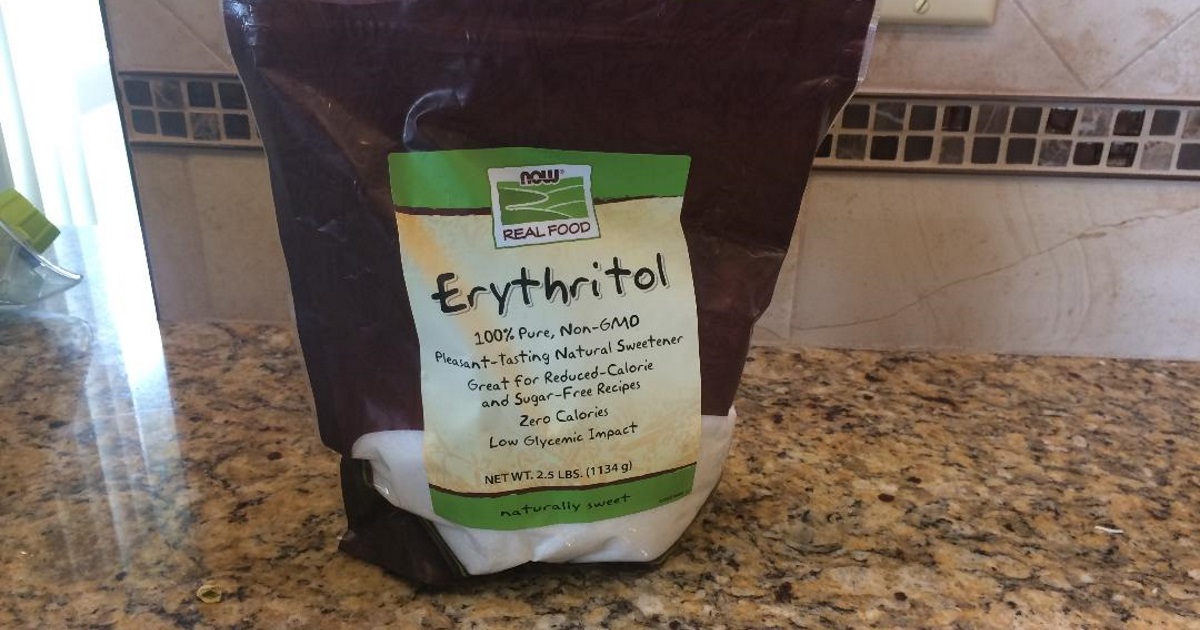
By a long shot, my favorite keto-friendly sweeteners are Erythritol, monk fruit, and Stevia. These sweeteners are all naturally derived, have little to no effect on blood sugar levels and insulin. They also have minimal gastrointestinal or laxative side effects (which can be experienced with some sugar alcohols).
Craving candy? Check out which keto gummy bears are safe and which ones to avoid unless you want some unpleasant gastrointestinal side effects. 🥴
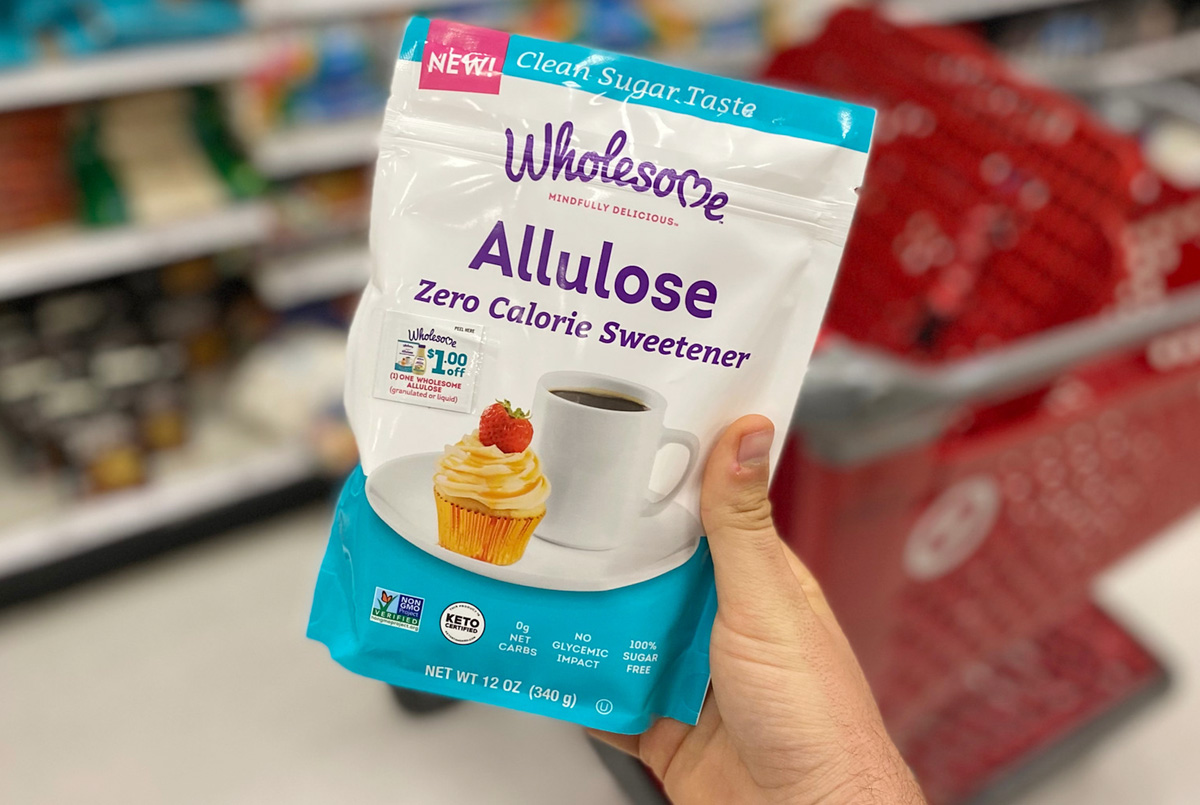
Allulose is also at the top of the list of keto sweeteners. Some small studies have shown that Allulose may help lower blood sugars when it’s consumed with high GI foods.
In addition, these natural keto sweeteners do not affect the good bacteria in the gut, which is a concern with synthetic or artificial sweeteners. Artificial sweeteners can potentially have negative impacts on your health.
Is it okay to use sweeteners on the keto diet?
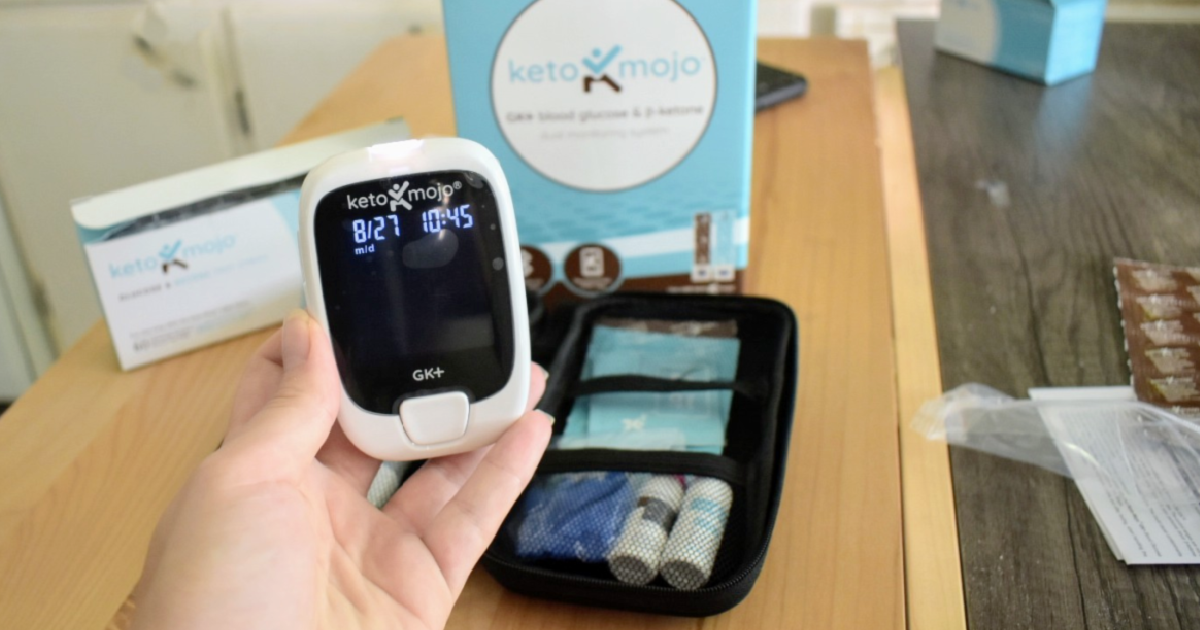
Most people on keto actually find that the craving for sweets goes away. In fact, many don’t use any sweeteners at all! However, if you do use sweeteners, choose natural ones with the lowest GI, and avoid (or limit) artificial sweeteners as much as possible.
Luckily, we use a lot of low glycemic index-friendly keto sweeteners in our keto dessert recipes! You don’t have to go without when you really get a craving. 🙌
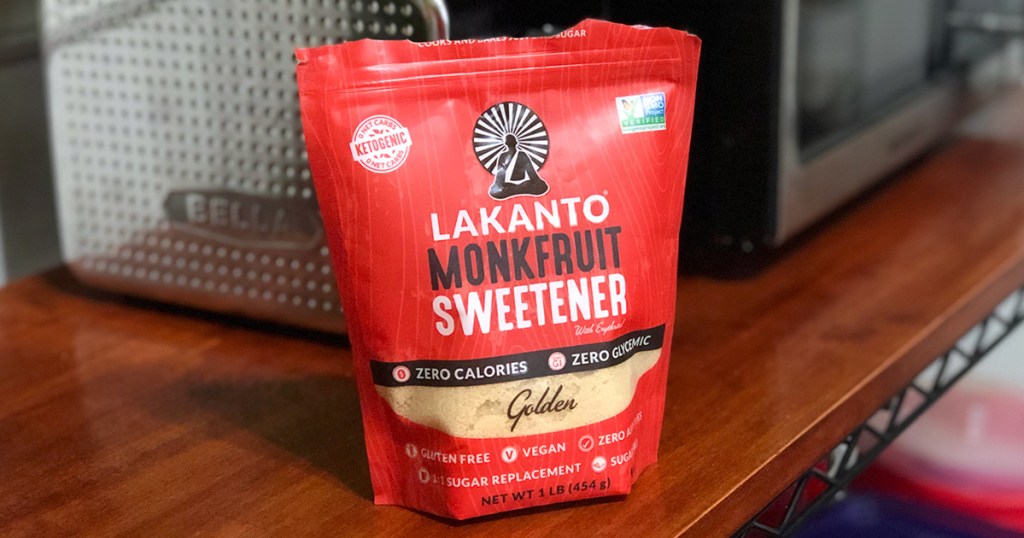
If your goal is weight loss, even natural, zero-carb sweeteners may impair your progress. They can lead to cravings and overeating. If you find that you’re having trouble staying on track, try eliminating all sweeteners for a couple of weeks and see if this helps.
Otherwise, choose your keto sweeteners wisely and keep rockin’ that keto lifestyle!



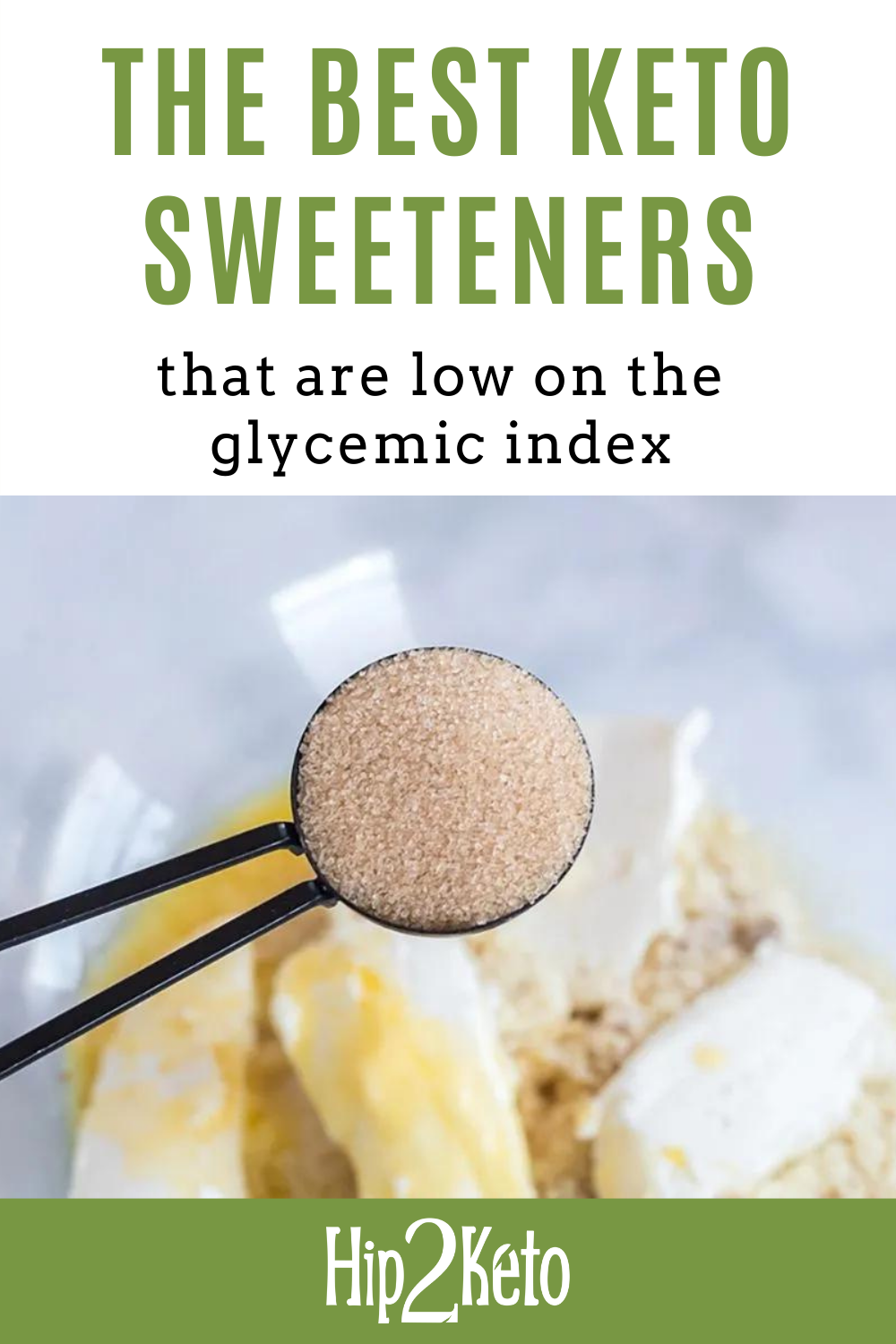

Lakanto is is by FAR the best tasting of the sugar substitutes. It’s a blend of erythritol and Monk Fruit.
Nice! I’ll have to try that one. Thanks for sharing!
If you try Whey Low sugar (www.wheylow.com), you’ll forget about all sugar substitutes…including Lokanto. It tastes EXACTLY like sugar, has a glycemic index of around 20 (which is extremely safe, even for diabetics), and has 75% fewer calories than sugar. It’s the best tasting sugar I’ve ever had so far, and I’ve tried them all.
NOTE: I’m NOT an affiliate of Whey Low, nor do I have any commercial interest in this company.
No, a diabetic wants the zero GI of eryhtritol
I’m not sure if you read the nutritional value of Whey Low Sugar but it has 4 grams of carbs per 1 tsp serving with zero fiber which means 4 grams of carbs is the net! That is way too great of carbs for anyone on keto. If you used a cup of Whey Low Sugar in a recipe that would equal 48 teaspoons x’s 4 equals 192 grams of carbs! Eating keto, I’d never consume that kind of sugar. It’s sounds like a good sugar but not for someone eating keto.
Can this be used with intermittent fasting? I’m on 12:12.
I agree with your assessment. I’ve baked with WheyLow too.
Not all people have no gastrointestinal effects from stevia. I’m in the small percentage that do. And it hits me immediately. If I drink a couple sips of Zevia soda with a meal, I have to run to bathroom before I finish eating meal. Ate sugar-Free Baskin Robbins ice cream cup and spent next 12 hours in the bathroom.
Hi Sandra! Darn I’m so sorry to hear that. You are right though. It does not affect everyone the same way. Fortunately I am able to tolerate stevia. Hopefully you find a good substitute that agrees with your tummy ❤
Thank you for the information about Stevia in the Raw. I will no longer purchase or use this product. Best to throw it out instead of sabotaging my keto scores. I do use liquid Stevia from NutriMedix with my daily Cistus Tea as an ongoing treatment for Lyme Disease. I also use (your photo) Now Erythritol in baking, but I don’t bake except for family holidays. I do appreciate the warning of Dextrose, even if it is in amounts that do not create calories.
You’re so welcome! Glad these tips have been helpful!
Monkfruit tastes like the real deal!! My favorite.
It’s my fave, too!
Have you found one that doesn’t have Erythritol? I’m allergic to Erythritol.
Any suggestions for Keto friendly sweetener that’s NOT derived from corn (allergic)? your favorite suggestions are: Allulose, maltitol, xylitol, erythritol – all from corn ..or at least their affordable versions are. Does straight, nothing else added monkfruit or stevia work for baking? Has anyone else tried them? Is there are powdered version?
Great question! I’ll look into this for you! 💕
Hello again! I did speak with our nutritional specialist on this!
Pure Stevia or pure monkfruit are corn-free. Xylitol can be corn-free if made from birch, but need to check labels to be sure though. Stevia and monkfruit are both sweeter than sugar and a little goes a long way. You can head to our sweetener guide for more info on these – https://hip2keto.com/tips/sugar-free-sweetener-conversion-chart/
Also, most monkfruit is blended with erythritol, so also need to check labels for that.
In addition, we did find this keto food blog and she uses mostly stevia for her recipes. Hope this helps!